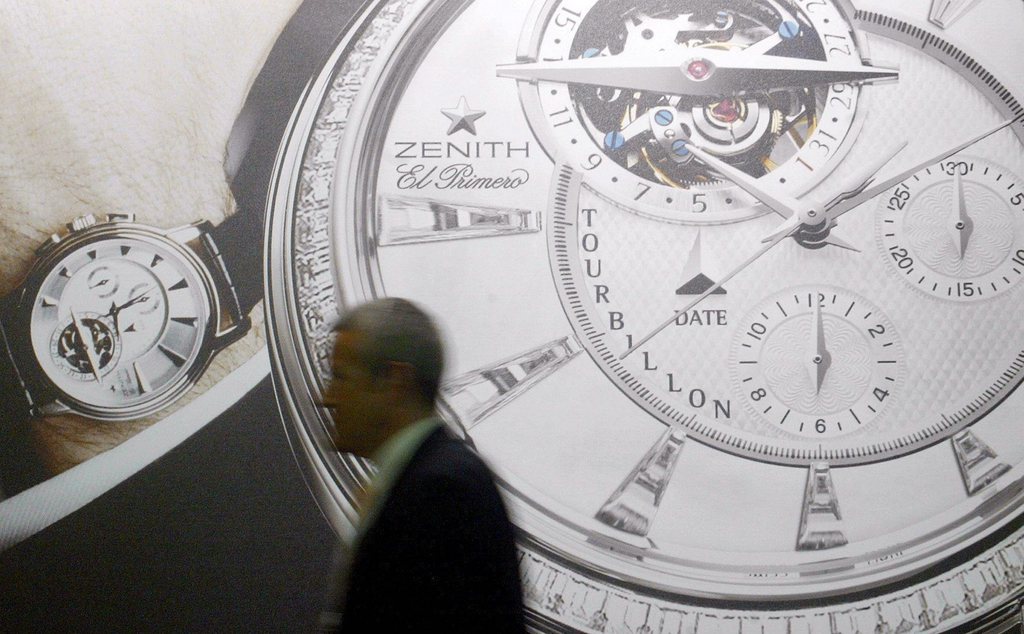
Watchmakers pull out of business federation

The Swiss watchmaking industry’s main association has resigned from the Swiss Business Federation, accusing it of not wanting to sufficiently protect the country’s brand, which it considers vital for its sector.
The watchmakers said they had decided on February 21 to leave the country’s leading business lobby group at the end of the year.
For its part, Economiesuisse said it regrets the federation’s decision, but will continue constructive talks about future cooperation.
The two organisations have been in disagreement over how much of a product is required to originate in Switzerland for it to be labelled Swiss made. Economiesuisse says that the requirements for the use of the Swiss label should not be too restrictive. It opposed a cabinet proposal to set the threshold at a 60 per cent share.
Watchmakers on the other hand back the government, saying they are particularly affected by the Swisssness discussion because almost all of their products carry the label. The Swiss made brand contributes to the attractiveness and the psychological appeal of Swiss watches, the watch federation says.
By failing to support the government’s proposal for industrial products economiesuisse “not only stands in the way of strengthening the protection of this label, but raises the likelihood of it becoming weaker than it is at present,” the watch federation said in a press release on Thursday.
Brand protection
Swiss made has long been a byword for quality. According to a study by researchers at St Gallen University, such a label on a product can generate up to 20 per cent more profit, although this varies from sector to sector.
There has been wide concern about the protection of the Swiss brand. Parliament has been trying for years to agree on what legally constitutes Swissness.
The biggest hurdle is to define the percentage of Swiss ingredients and parts included in food and manufactured products in order to be called Swiss. Farmers want a high percentage, while the food industry is demanding more flexibility, as Switzerland for instance has to import cocoa used in Swiss chocolate.
Economiesuisse claims that a 60 per cent share is not practicable, does not comply with international standards and lowers the competitiveness of Swiss companies and products.
The business federation also says that it favours 60 per cent for the watch industry, but does not support an “industry-specific solution being imposed onto other sectors.”
That position runs counter to the interests of the Swiss watch industry, which lobbies very actively in favour of a strong Swiss brand in order to maintain its credibility in Switzerland and worldwide, the federation said. It claims that a strong label promotes industrial activity and job creation in Switzerland.

In compliance with the JTI standards
More: SWI swissinfo.ch certified by the Journalism Trust Initiative

























You can find an overview of ongoing debates with our journalists here . Please join us!
If you want to start a conversation about a topic raised in this article or want to report factual errors, email us at english@swissinfo.ch.